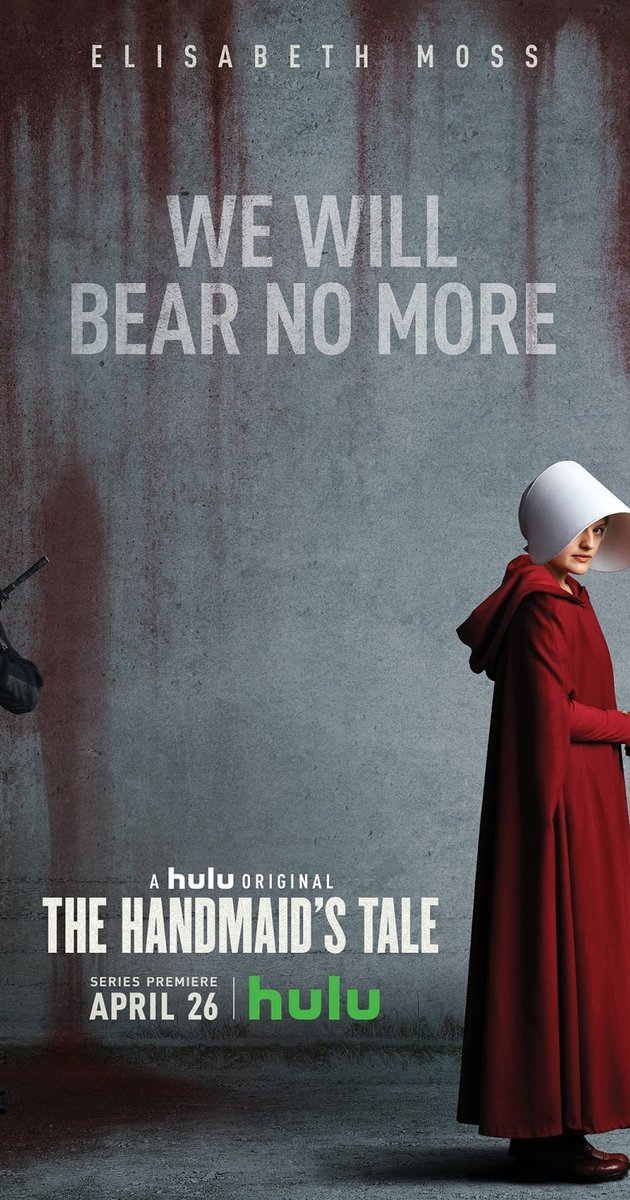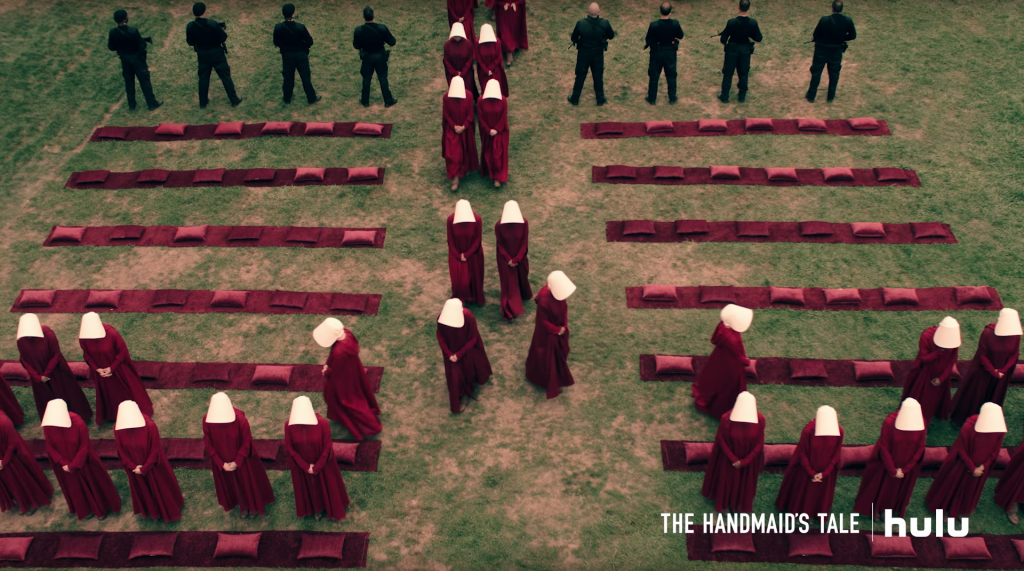Protesters across the country have adopted a new uniform.
It’s immediately recognizable to avid readers or fans of dystopian TV, yet perplexing to those unaware of its origins, easily thrown by its anachronistic vibes. Whether you know the name Offred or not, the getup ― seen in congresses across the United States over the past few months ― is arresting nonetheless: Red robes and white bonnets have become standard livery for activists in America.

Of course, the uniform harks back to The Handmaid’s Tale, Margaret Atwood’s chilling depiction of a future U.S. occupied by theocrats convinced that their survival hinges on an ability to control women’s bodies, recently adapted as a TV series on Hulu.
In Gilead, powerless, fertile women are indentured servants, expected to endure regular sexual abuse in the name of procreation on a polluted planet. They live as handmaids, still attempting to come to terms with the bizarre political upheaval that’s slowly stripped them of their human rights.
In the 1980s, such a hellscape in real life seemed silly. Today, as a proposed GOP bill threatens to “decimate women’s healthcare,” and the realities of climate change continue to be contested, the improbability of Gilead has faded.
The Hulu series, led by showrunner Bruce Miller and star Elisabeth Moss, brought the likelihood of Handmaid’s Tale to contemporary attention. Fans of the book had long touted its relevancy, but once the show ― critically acclaimed, adored by fans ― hit the streaming service, its potency bubbled over. Miller’s Gilead, now set in present day with references to Tinder and weed and millennial feminism, was a graspable place. A place many American women were unwilling to go.
Just this week, a group of activists dressed as handmaids marched on the Capitol building, protesting the GOP’s health care plan which, among other things, would leave millions of women uninsured, result in a likely spike in unintended pregnancies, and increase overall Medicaid spending on births. Written by 13 men, the bill would shirk the kinds of preventative care women in particular rely upon and notably roll back an Obama-era rule that requires insurance companies to cover contraception, as well as maternity care. Their red robes and white bonnets, on display in a place otherwise populated by men in suits, spoke volumes.
In May, when House Republicans voted through legislation that would repeal the Affordable Care Act (ACA), replacing it with a bill that suggested things like pregnancy, postpartum depression and rape would be considered pre-existing conditions, visions of “Handmaid’s Tale” flooded social media. “Live from the WH Rose Garden,” one woman tweeted alongside a still from the show, showing handmaids in those familiar red robes and white bonnets being corralled by emotionless armed men.

